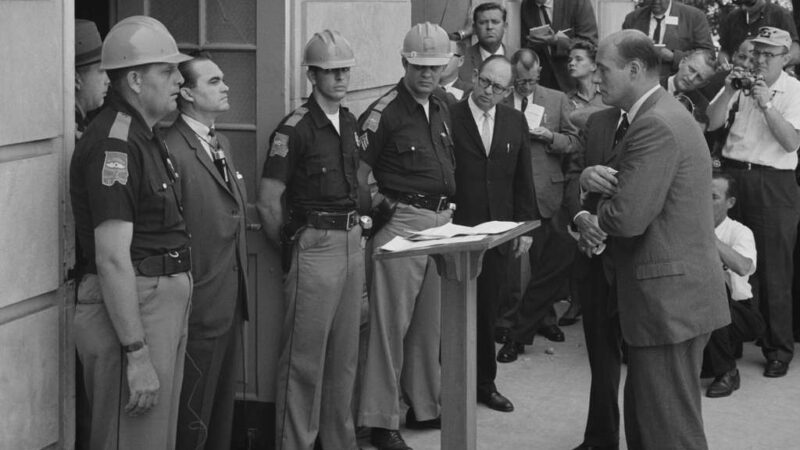Alabama Supreme Court Causes Marriage License Confusion
In an order released Monday, the Alabama Supreme Court is inviting parties to submit briefs “addressing the effects of the Supreme Court’s decision” in Obergefell v. Hodges.
Many lawyers and other experts first interpreted the order as a 25-day buffer period before Alabama probate judges would have to begin issuing marriage licenses to same-sex couples. However, further analysis concluded that the order does not include any directions for probate judges.
John Carroll, former U.S. Magistrate Judge and Samford law professor, says the order gives probate judges some temporary power.
“It meant that the probate judges don’t have to issue the licenses [to same-sex couples],” he says, “but they can if they want to.”
Carroll says it’s unclear whether the 25-day buffer period still stands, and the Alabama Supreme Court will have to give further direction before anything will change.
“I think the court’s going to have to issue another order,” he says, “or I think probate judges will continue doing what’s going on now– which is some are issuing licenses and some aren’t.”
An Associated Press telephone survey of counties on Monday found that nearly half of Alabama’s counties (at least 32 of the state’s 67 counties) were issuing the licenses to gay couples.
Alabama Supreme Court Chief Justice Roy Moore agreed with Carroll’s assessment. “What the order means is that within that 25-day period no [probate judge] has to issue a marriage license to a same sex couple,” Moore told al.com.
Why 25 days?
“Every appellate court, including the U.S. Supreme Court, has a period of time after they rule for the parties to seek rehearing,” says Carroll.
According to U.S. Supreme Court Rule 44 , “Any petition for the rehearing of any judgment or decision of the Court on the merits shall be filed within 25 days after entry of the judgment or decision.”
“If the court doesn’t grant rehearing in 25 days, then the order is in deed final,” says Carroll. “No one, quite frankly, expects the ruling of the Supreme Court to be altered in any shape or form.”
No More Licenses
Several Alabama counties, like Pike County, have shut down marriage license operations altogether.
Reporting for NPR, Troy Public Radio’s Kyle Gassiott says “marriage licenses haven’t been issued (in Pike County) to gay or straight couples since February, in protest of an earlier court decision that briefly legalized gay marriage in the state.” On Friday, Pike County Probate Judge Wes Allen released a statement saying he believes the U.S. Supreme Court overstepped its authority and that Pike County would no long issue marriage licenses to anyone.
Additional reporting provided by the Associated Press. Updated Tuesday, June 30 with additional information on U.S. Supreme Court rehearing rules.
How George Wallace and Bull Connor set the stage for Alabama’s sky-high electric rates
After his notorious stand in the schoolhouse door, Wallace needed a new target. He found it in Alabama Power.
FIFA president defends World Cup ticket prices, saying demand is hitting records
The FIFA President addressed outrage over ticket prices for the World Cup by pointing to record demand and reiterating that most of the proceeds will help support soccer around the world.
From chess to a medical mystery: Great global reads from 2025 you may have missed
We published hundreds of stories on global health and development each year. Some are ... alas ... a bit underappreciated by readers. We've asked our staff for their favorite overlooked posts of 2025.
The U.S. offers Ukraine a 15-year security guarantee for now, Zelenskyy says
Ukrainian President Volodymyr Zelenskyy said Monday the United States is offering his country security guarantees for a period of 15 years as part of a proposed peace plan.
Genre fiction and female authors top U.S. libraries’ most-borrowed lists in 2025
All of the top 10 books borrowed through the public library app Libby were written by women. And Kristin Hannah's The Women was the top checkout in many library systems around the country.
The Best Tiny Desk Concerts of 2025
Which Tiny Desk made an audio engineer question everything? Which one made a producer want to cry? Touch grass? Look back on the year in Tiny Desk, with the people who make them.







